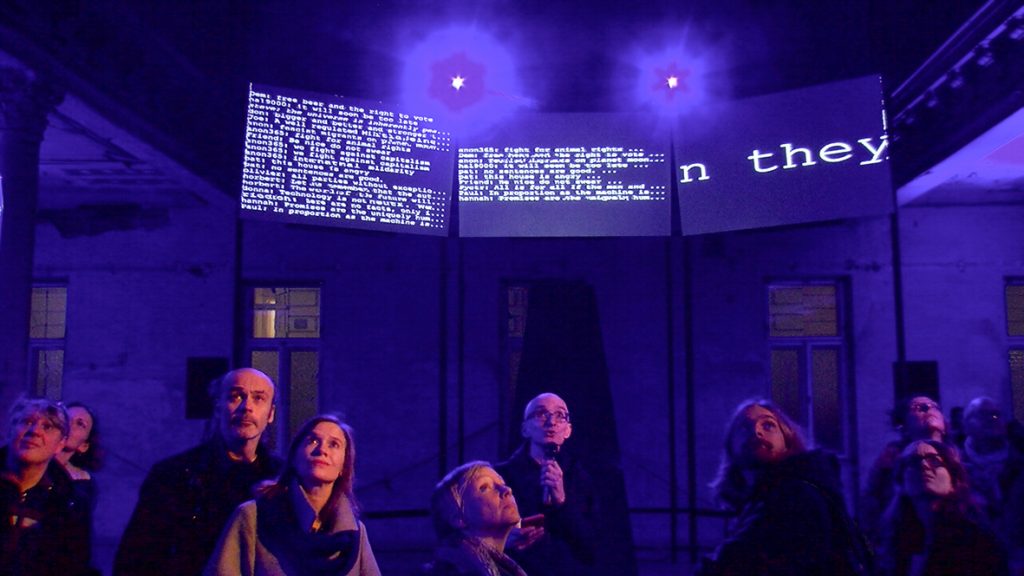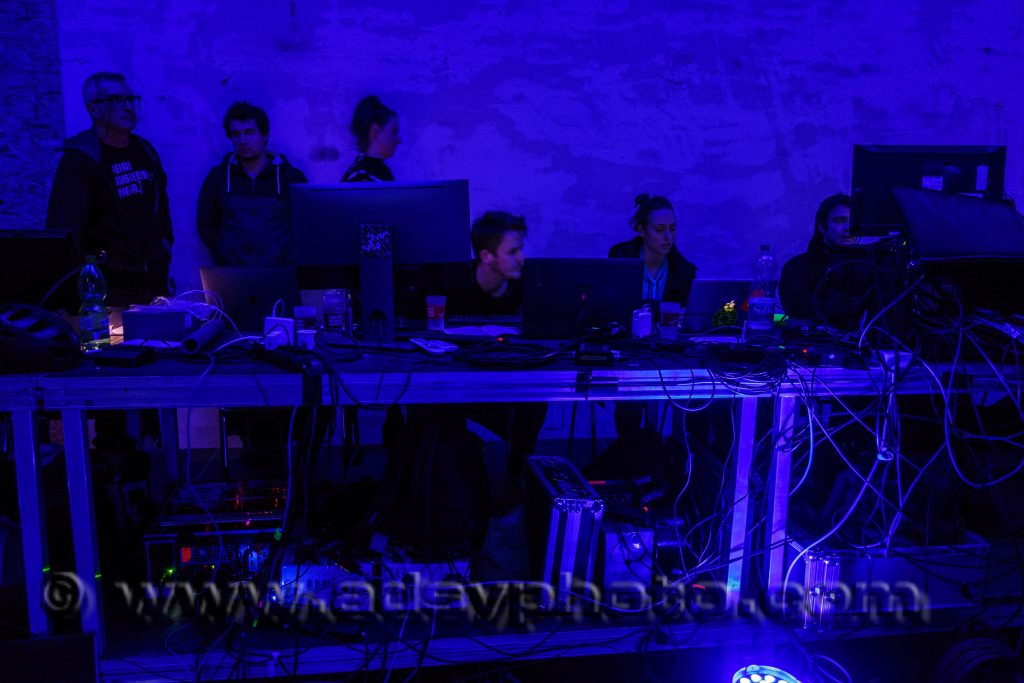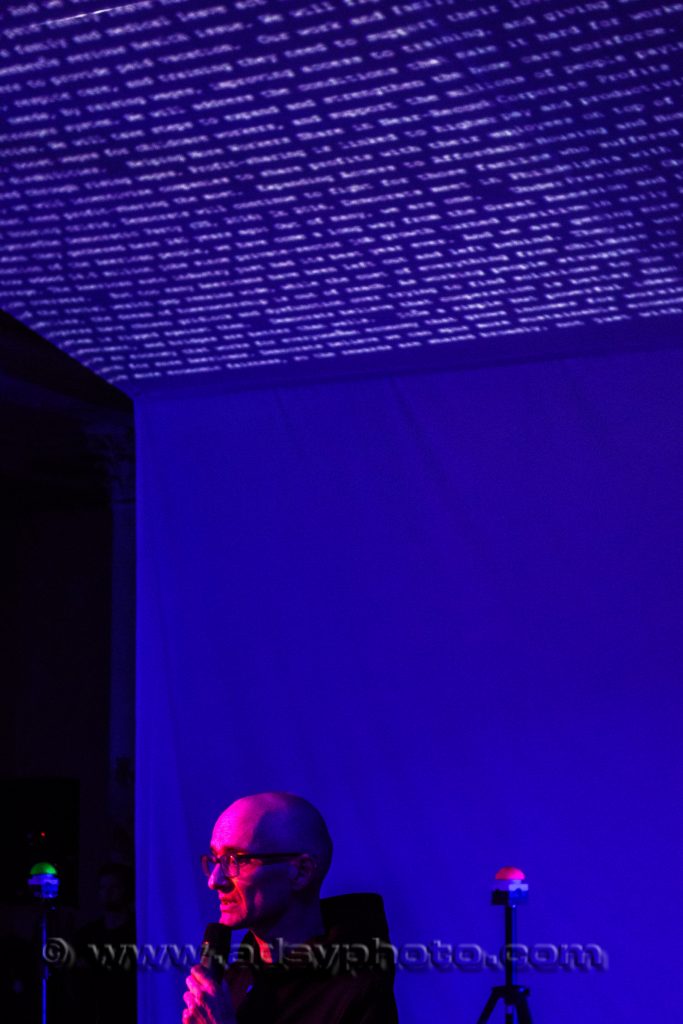Roussel-Machine; a text-AI to liquify lingo-spatial assemblages


Let text perform in space, collaboratively
Raymond Roussel (1877–1933), French writer, who developed a unique compositional method throughout his life. His work had profound influence on 20th century French literature and the Surrealist movement. He devised a reading device to give his readers a special opportunity to access his writing. He proposed it to his publisher who rejected it. There are rather little facts but quite some anecdotes around Roussel’s machine. Some people interpreted his machine. Juan Esteban Fassios (1943, 1964) interpretation seems to have risen to a kind of standard, with the consequence that it sometimes wrongly is described as Roussels own intervention. In conceiving a reading machine, he did something that allows for an intimate situation between a reader and a text. It is a dual, linear situation without interaction.
Oliver formalised Roussels method. For this first part of the project, that is what one might want to call the base procedure of something that actually a set of Roussels methods. That had been programmed into a natural language processing algorithm by OFAI (Stephanie Gross, Brigitte Krenn, Friedrich Neubarth). The interaction of the algorithm with space by means of humanoid robotics had been programmed by ACIN (Clara Haider, Matthias Hirschmanner). The frontends of interactive text-projection and text-speech had been programmed by Patrick Lechner and Christian Fiedler.
In our first AI-project, the space-game AI, we examine relations of language and space. The space-game project aims at sharing individual and collective cultural meanings in the man-machine continuum. What the space-game is not about, is the deviation of meaning, the richness of potential meaning within existing structures of language and space. This topic is not about the meaningless, the non-sense, the absurd, or the alike but it is constantly on the threshold to it. It is experimentation with questions of how one might produce new layers of meaning within sets of lingo-spatial assemblages, provide access to those meanings, and offer those to the everyday.
The Roussel-Machine performed two times so far: at our performance and at our seminar at the Art Festival “The Future of Demonstration; Vermögen”
(Images, where mentioned, by Adsy Bernart - Photography www.adsyphoto.com)


